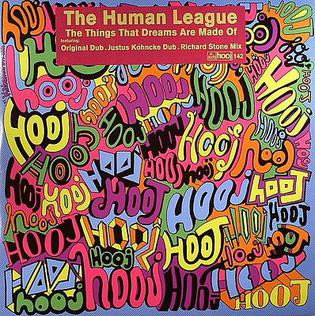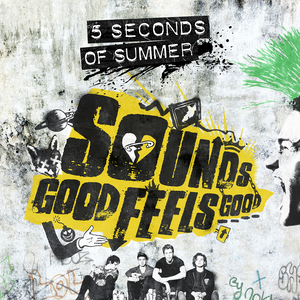Related Research Articles

"In the Air Tonight" is the debut solo single by the English drummer and singer-songwriter Phil Collins. It was released as the lead single from Collins's debut solo album, Face Value, in January 1981.

The Roland MC-8 MicroComposer by the Roland Corporation was introduced in early 1977 at a list price of US$4,795. It was one of the earliest stand-alone microprocessor-driven CV/Gate music sequencers, following EMS Sequencer 256 in 1971 and New England Digital's ABLE computer (microprocessor) in 1975. Roland called the MC-8 a "computer music composer" and it was considered revolutionary at the time, introducing features such as a keypad to enter note information and 16 kilobytes of random access memory which allowed a maximum sequence length of 5200 notes, a huge step forward from the 8-16 step sequencers at the time. It also allowed the user to allocate multiple pitch CVs to a single Gate channel, creating polyphonic parts within the overall sequence. Due to the high price, only 200 units were sold worldwide, but it represented a huge leap forward in music technology.

Pete Shelley was an English singer, songwriter and guitarist. He formed early punk band Buzzcocks with Howard Devoto in 1976, and became the lead singer and guitarist in 1977 when Devoto left. The group released their biggest hit "Ever Fallen in Love " in 1978. The band broke up in 1981 and reformed at the end of the decade. Shelley also had a solo career; his song "Homosapien" charted in the US in 1981.

Solid State Logic (SSL) is a manufacturer of high-end mixing consoles and recording studio hardware which is headquartered in Begbroke, Oxfordshire, England.

Dare is the third studio album by English synth-pop band the Human League, first released in the UK on 16 October 1981 then subsequently in the US in mid-1982. The album was recorded between March and September 1981 following the departure of founding members Martyn Ware and Ian Craig Marsh, and saw the band shift direction from their prior avant-garde electronic style toward a more pop-friendly, commercial sound led by frontman Philip Oakey.

The Hit Factory is a recording studio in New York City famous for its clientele. Ed Germano's reputation for doing anything and everything to make his clients happy propelled The Hit Factory Studios as the place to record in New York City. Ed's son, Troy Germano, carries on his legacy as the owner/operator of Germano Studios | The Hit Factory, a state-of-the-art recording and mixing facility, opened in Noho in 2008.

Homosapien is the second solo album by British musician Pete Shelley, released in 1981. The album follows his experimental instrumental album Sky Yen and his work with the group Buzzcocks, who initially disbanded in 1981. Homosapien saw a marked departure from the punk stylings of Buzzcocks' records, being heavily influenced by the programmed synthesizer sounds and drum machines of synthpop, with the addition of Shelley on acoustic guitar. The title track was released as a UK single and was banned by the BBC due to explicit homosexual references, but was nevertheless a hit in several other countries.

Generation X is the first studio album by English punk rock band Generation X, produced by Martin Rushent, it was released in the United Kingdom on 17 March 1978.

Le Studio was a residential recording studio in the Laurentian Mountains near the town of Morin-Heights, Quebec, Canada built in 1972 by recording engineer and producer André Perry, Nick Blagona and Yaël Brandeis. The studio, where artists recorded and stayed, was the venue for many notable Canadian and international artists, including Rush, The Police, Bee Gees, Chicago, David Bowie, April Wine and Cat Stevens and Vain (band). Perry described the facility as "like the United Nations. I had people from London, New York, Quebec, all over the world."

Martin Rushent was an English record producer, best known for his work with The Human League, The Stranglers and Buzzcocks.

A Different Kind of Tension is the third studio album by English punk rock band Buzzcocks. It was released in September 1979 by record label United Artists.
Associated Independent Recording (AIR) is an independent recording company founded in London in 1965 by record producer Sir George Martin and his business partner John Burgess, after their departure from Parlophone. The first album produced by George Martin by his new company was the Beatles' Rubber Soul, recorded at Abbey Road Studios.

The Roland MC-4 MicroComposer was an early microprocessor-based music sequencer released by Roland Corporation. It could be programmed using the ten key numeric keyboard or a synthesizer keyboard using the keyboards control voltage and gate outputs. It was released in 1981 with a list price of US$3,295 and was the successor to the MC-8, which in 1977 was the first microprocessor-based digital sequencer. Like its predecessor, the MC-4 is a polyphonic CV/Gate sequencer.

"The Things That Dreams Are Made Of" is a song by the English synthpop group The Human League. It was originally recorded for the Dare album of 1981. It was remixed, remastered and released as a dance EP single in 2008; partly to coincide with the 30th anniversary of the Human League, 26th anniversary of Dare and the band's Dare '07 tour. It reached number two in the official UK Dance Chart in February 2008.
The Town House was a recording studio located at 150 Goldhawk Road, Shepherd's Bush in London, built by Richard Branson in 1978, and managed by Barbara Jeffries as part of the Virgin Studios Group. The Virgin Studios Group was acquired by EMI when Richard sold Virgin Records to EMI in 1992. The Sanctuary Group bought the studio from EMI in 2002. Al Stone, a recording engineer and producer, who trained at The Town House, ran the studios for Sanctuary in 2006, only to see Universal close it around April 2008 after a Sanctuary buy-out. The building had three recording rooms, numbered 1, 2 and 4: Studio number 3 was The Who's old Ramport Studios.
Atlantic Studios was the recording studio of Atlantic Records. Although this recording studio was located at 1841 Broadway, in New York City, Atlantic Recording Studios was initially located at 234 West 56th Street from November 1947 until mid-1956. When the Shorty Rogers and His Giants disc of 33.33 rpm called Martians Come Back! was issued in August 1956, the address of Atlantic Recording Studios had relocated to 157 W 57th Street. The studio was the first to record in stereo due to the efforts of Tom Dowd.
Konk is the name of a recording studio and record label, established and managed by members of English rock band the Kinks.
Advision Studios was a recording studio in Fitzrovia, central London, England.

Odyssey Studios was a recording studio based near Marble Arch in London and opened in 1979. It was set up by Wayne Bickerton as an extension of State Records, the label he had set up with Tony Waddington and John Fruin in 1975. The studio closed in 1989 and the building was subsequently sold to Jazz FM.

Sounds Good Feels Good is the second studio album by Australian pop rock band 5 Seconds of Summer. It was released on 23 October 2015 through the labels Hi or Hey and Capitol Records. In support of the album, the band embarked on the Sounds Live Feels Live World Tour.
References
- 1 2 The Telegraph (7 June 2011). "Martin Rushent". The Telegraph. London. Retrieved 14 June 2011.
- 1 2 3 4 5 6 Burns, Phillip. "Genetic Studios". A History of British Recording Studios from the 50s – 80s. Archived from the original on 3 June 2011. Retrieved 14 June 2011.
- 1 2 3 4 Flint, Tom (2007). "Martin Rushent: from Punk to Electro". Sound on Sound. SOS Publications Group. Retrieved 6 June 2011.
- ↑ Buskin, Richard (2010). "Human League "Don't You Want Me"". Sound on Sound. SOS Publications. Retrieved 6 June 2011.
- 1 2 Owen, Pamela (2008). "Residents' anger at 'desecrated' land". Newbury Weekly News. Archived from the original on 19 July 2011. Retrieved 14 June 2011.
- ↑ Slater, Natalie (2009). "Neighbours' anger over the £12 million mansion". Get Reading. Retrieved 14 June 2011.